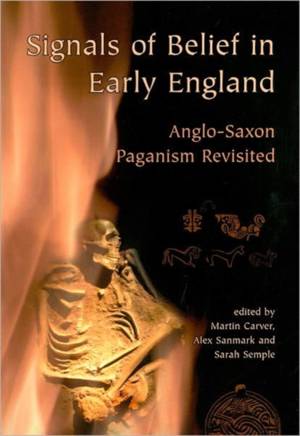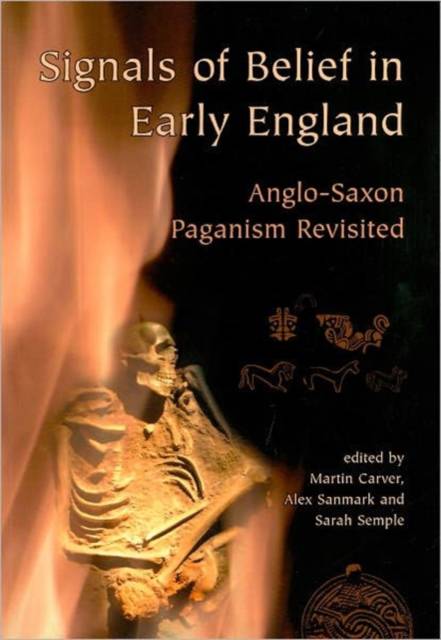
En raison d'une grêve chez bpost, votre commande pourrait être retardée. Vous avez besoin d’un livre rapidement ? Nos magasins vous accueillent à bras ouverts !
- Retrait gratuit dans votre magasin Club
- 7.000.000 titres dans notre catalogue
- Payer en toute sécurité
- Toujours un magasin près de chez vous
En raison de la grêve chez bpost, votre commande pourrait être retardée. Vous avez besoin d’un livre rapidement ? Nos magasins vous accueillent à bras ouverts !
- Retrait gratuit dans votre magasin Club
- 7.000.0000 titres dans notre catalogue
- Payer en toute sécurité
- Toujours un magasin près de chez vous
Signals of Belief in Early England
Anglo-Saxon Paganism Revisited
Alex Sanmark, Sarah Semple
Livre broché | Anglais
60,45 €
+ 120 points
Description
This volume will throw new light on the intellect of the earliest English - the way they thought, the way they viewed the world, and the way they viewed worlds other than this. Previous understanding of the topic, well rooted in the ideas of its time, regarded the English as adherents of two consecutive religions: Paganism governed the settlers of the 4th-6th century, but was superseded in the 7th-10th century by Christianity. Of the two, Christianity, a religion of the book, documented itself thoroughly, while in failing to do so Paganism laid itself open to centuries of abuse, conjecture or mindless admiration.
In developing new objectives, the papers here demonstrate that beliefs varied from place to place and were expressed in material culture. Through archaeology therefore, these beliefs can be rediscovered. Aware of the fact that even the best archaeology provides no open access to the mind, the contributors record, and study, signals of belief rather than what was believed.
The premise of this volume is therefore that paganism was not a religion with supraregional rules and institutions but a loose term for a variety of local intellectual world views. The same courtesy is extended to Christianity. Both religions are treated as sources on which people, local people - the true agents of Anglo-Saxon England - eclectically drew.
A range of material culture and locations across Northern Europe are explored, looking at signals of belief from the landscape, water cults, burial rites, the hall and animals in life and art. Each author looks across the sea to Scandinavia, as well as to the woods and fields, mires and mounds of Old England, resulting in a new perspective on the intellectual preoccupations and anxieties of a crucial age.
In developing new objectives, the papers here demonstrate that beliefs varied from place to place and were expressed in material culture. Through archaeology therefore, these beliefs can be rediscovered. Aware of the fact that even the best archaeology provides no open access to the mind, the contributors record, and study, signals of belief rather than what was believed.
The premise of this volume is therefore that paganism was not a religion with supraregional rules and institutions but a loose term for a variety of local intellectual world views. The same courtesy is extended to Christianity. Both religions are treated as sources on which people, local people - the true agents of Anglo-Saxon England - eclectically drew.
A range of material culture and locations across Northern Europe are explored, looking at signals of belief from the landscape, water cults, burial rites, the hall and animals in life and art. Each author looks across the sea to Scandinavia, as well as to the woods and fields, mires and mounds of Old England, resulting in a new perspective on the intellectual preoccupations and anxieties of a crucial age.
Spécifications
Parties prenantes
- Auteur(s) :
- Editeur:
Contenu
- Nombre de pages :
- 208
- Langue:
- Anglais
Caractéristiques
- EAN:
- 9781842173954
- Date de parution :
- 31-12-10
- Format:
- Livre broché
- Format numérique:
- Trade paperback (VS)
- Dimensions :
- 170 mm x 239 mm
- Poids :
- 557 g

Les avis
Nous publions uniquement les avis qui respectent les conditions requises. Consultez nos conditions pour les avis.






